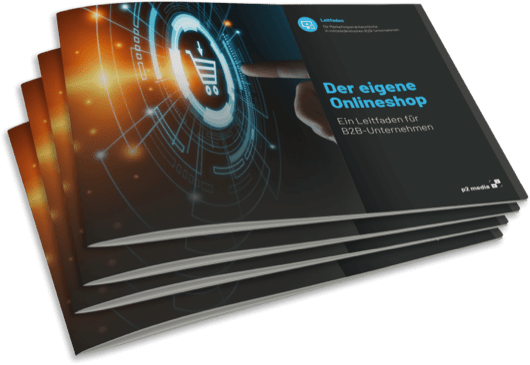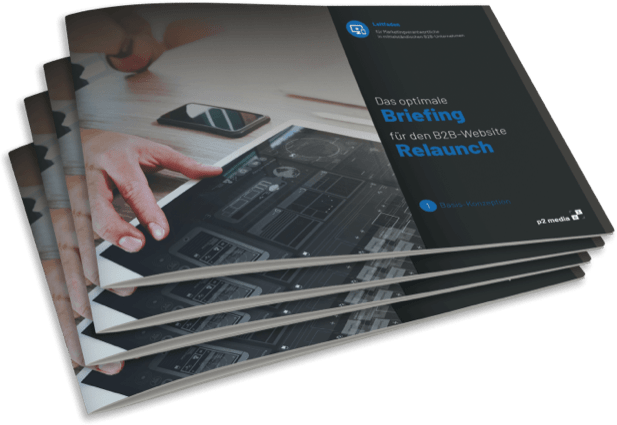Visitor data from Internet presences, i.e. page views, dwell time, bounce rate, etc., provide extremely useful insights into the success of one's own online activities. Tracking these and using them to optimise the respective efforts is one of the elementary premises for companies to be sufficiently competitive today. Google Analytics, with a generally estimated market share of 80 percent, is still the most widely used, but also the most controversial analysis tool for website tracking.
Even before the EU's General Data Protection Regulation (GDPR) came into effect in May 2018, the tool's handling of tracked data was problematic. Like many other US corporations, Google transferred and continues to transfer information to the United States by default to this day. This practice was legally regulated by the US EU Privacy Shield agreement since 2016. However, in relation to this agreement, there has recently been another drastic ruling from the European Court of Justice (ECJ). This further strengthens the GDPR and the ePrivacy Directives that are on the way. The resulting developments in particular make the use of an alternative to Google Analytics practically unavoidable.
Why is it urgent to use
an alternative to Google Analytics?
On 16 July 2020, the ECJ declared the US EU Privacy Shield invalid. From now on, data transfers to the United States can no longer be based on the agreement. Corresponding transfers of user data of all kinds now threaten to be illegal once and for all. On 12 August 2020, Google promptly announced that it would adapt its data protection provisions in order to ensure legally compliant handling in the context of data transfers even after the current ruling. However, according to the Data Protection Conference of the German Federal States, the implementation of the standard data protection clauses of the EU Commission focused on by Google in this regard is hardly sufficient for adequate data protection.
This development, of course, means another negative factor for Google Analytics users, about which they may be legally prosecuted. Although this does not impose any new requirements on the use of Google Analytics, it does considerably reinforce the current status of the Data Protection Regulation and the ePrivacy Guidelines.
For a legally compliant handling of Google Analytics, the analysis tool may only perform website tracking if an explicit consent of the respective visitor is available. This must be done via a cookie banner, also known as a consent banner, which provides information about all tracking measures. Here, visitors must be able to decide completely independently - and not by means of pre-selected boxes - whether they consent to the collection of personal data that goes beyond the absolutely necessary information. Furthermore, there must be anonymization of the tracked IP addresses.
This results in specific problems regarding the effectiveness of Google Analytics: Consent rates are continuously dwindling with an ever-increasing awareness of data protection. Google Analytics thus provides less and less representative results. In addition, adblockers will probably increasingly block cookie banners in the future, which will further reduce the consent rate. This will ultimately make Google Analytics useless as an analysis tool.
What are the alternatives to Google Analytics?
Was ist der Unterschied zwischen Matomo und Etracker
In fact, the market for analytics tools for website tracking is very large. However, there are relatively few real alternatives to Google Analytics. The most promising competitors in terms of data protection and functionality are Matomo and etracker.
Both Matomo and Etrackerbasically offer the most important functions that companies need for data-driven online marketing. The big advantages of Matomo are that this analysis tool stores all data on its own servers as needed and functions very similarly to Google Analytics. Due to the latter feature, it requires little switching willingness from changing companies. However, the loading times are not ideal. Viewing collected data or creating new segments can take as long as 24 hours.
Etracker is more different from Google Analytics, but it makes it easier to get started with good usability. The loading times are significantly faster here compared to Matomo. However, the full range of functions is only available for a fee or in the Pro and Enterprise packages. Matomo, on the other hand, can be used completely free of charge. When using etracker, data is stored on external servers of the provider. However, all of these are located in Germany and etracker Analytics is guaranteed to handle user data in full compliance with data protection regulations (in accordance with the EU General Data Protection Regulation).
- The range of functions is very similar for both alternatives to Google Analytics, but here and there one or the other analysis tool has the edge.
- Both provide extensive information on visitors. Among other things, demographic data, such as languages or even operating systems, and all classic KPIs, such as page views, dwell time or bounce rate, are taken into account.
- Custom campaign tracking is possible with both tools, but etracker offers a somewhat easier integration of Google Ads.
- etracker also has slight advantages when it comes to event tracking. Many events can be measured automatically here, i.e. without having to create them separately. The manual setting is also very easy.
- In terms of conversions and e-commerce, both tools are similarly well positioned. Specific goals can be tracked (lead gen), transaction tracking can be done, funnels can be created and multi-touch attribution can also be done. There is little difference in usability between etracker and Matomo in this regard.
- The ability to create your own segments and user-defined dimensions is a very important prerequisite for a more detailed analysis of collected data. These options are only available with Matomo.
- Real-time calls, which are particularly helpful for immediately recording the effect of changes to an Internet presence, can also be registered with both etracker and Matomo.
What implementation effort is involved in switching to one of the alternatives to Google Analytics mentioned above?
Matomo offers the choice between Cloud Hosting and Self Hosting. With etracker, only cloud hosting can be selected. The latter is much easier, as companies do not need IT expertise for implementation.
With self-hosting, the data is stored on the company's own servers. Of course, the main advantage of this is that the information does not have to be shared with third parties. When using Matomo, there is the possibility to anonymize data automatically. Thus, the processing of personal information is clearly avoidable.
In the case of cloud hosting, the processor processes the personal information within the framework of the instructions of the client - in this case, the user of the analysis tool. The responsibility remains with the client. In this case, data security can only be guaranteed by technical and organisational measures. In addition, anonymization is more complicated because it is not in the client's own hands. These circumstances make the use of cloud hosting solutions, such as etracker, somewhat more difficult.
- strongly based on google analytics (demographic: language, operating system, classic data: page views, page duration, bounce rate)
- event tracking for interactions and events of websites
- internal website search possible
- custom segments can be created: collected data can be analyzed in more detail
- user-defined dimensions can be created (repeat customers)
- real-time data on current page views and events
- cloud hosting and self hosting possible
- relatively short loading times
- All information about visitors is as usual
- Campaign tracking is possible, integration of Google Ads works better here than Matomo
- Event tracking - many events are measured automatically without having to create them separately
- internal website search is also tracked
- Lead Gen is very user friendly - targets are easier to create
- transaction tracking for shops is possible
- you can create filters
- you can retrieve data on multi-touch attributes
- there is the possibility to access enhanced e-commerce data
Our support around the topic of web analytics & data protection:
- Support with the DSGVO-compliant application and implementation of your online media.
- Optimization of your email marketing and legally compliant newsletter distribution.
- Design and implementation of meaningful KPIs for the evaluation of your pages or applications. Individual development of dashboards that give you an overview of the relevant key figures.
- DSGVO-compliant implementation of analysis tools (Matomo / Google Analytics etc.) in your pages / applications.
Benefit from our know-how also in the following topics:
Oliver Parrizas will be happy to answer any questions you may have on the subject. +49-800-911-91-91







